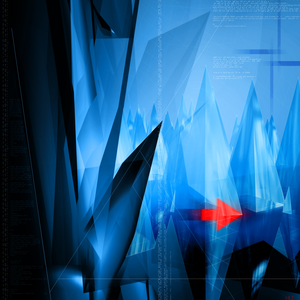A Sense of Coherence

One of the central concepts of Integrated Health and Integrated Medicine is the idea of coherence. This is not a new idea, but was developed in new ways and formalized by the American/Israeli sociologist Aaron Antonovsky. It is such an important concept that I have mentioned something about it before
Antonovsky developed his theory of health and illness, which he termed Salutogenesis. This model was described in his 1979 book “Health, Stress and Coping”, followed by “Unraveling the Mystery of Health”
in 1987. I remember its publication, and the strong feeling amongst many of us interested in Integrated Health that it was a most important
contribution to understanding the relationship between health and
illness. A key concept in Antonovsky’s salutogenic theory concerns the way in which
specific personal dispositions serve to make us more resilient
to the stressors that we encounter in daily life.
Antonovsky identified
these characteristics, which he said helped a person better cope and remain healthy by providing “a sense of coherence” (SOC) about
life and the challenges we all face. Measures of Sense of Coherence have
been developed and tested in more than 30 countries.
The SOC is defined as: “The extent to which one has a pervasive, enduring though dynamic, feeling of confidence that one’s environment is predictable and that things will work out as well as can reasonably be expected.”
So it tries to capture our sense of optimism and control.
SOC has three components:
- Comprehensibility
- Manageability
- Meaningfulness
Comprehensibility is the extent to which events are perceived as making logical sense, that they are ordered, consistent, and structured. Manageability is the extent to which a person feels they can cope. Meaningfulness is how much one feels that life makes sense, and challenges are worthy of commitment.
Professor Antonovsky believed that a person with a strong SOC is more likely to feel less stress and tension, and to have confidence that he or she can meet the demand placed upon them. The SOC was developed to apply across cultures, and versions of the questionnaire have been used in over 30 countries.
The SOC is not the only factor in a predicting outcomes in a person’s life: it interacts with a person’s natural coping style, upbringing, financial assets, mood and social support. The strength and availability of each is a major determinant in the development of a strong or weak SOC.
Research in the growing field of psychoneuroimmunology
has supported many of the basic assertions of the relationship between
emotions and health contained in Antonovsky’s theory of Salutogenesis.
I saw some research (NR691) at the 2007 Annual Meeting of the American Psychiatric Association in San Diego, California last month that was based on a sample of 976 working people in Denmark, found that people with a high sense of coherence perceive less stress and experience less psychological disturbance in the work place.
This all makes very good sense, and it also gives us yet another line of approach for helping people deal with the stresses of life and gain personal mastery.
I shall talk about using this information in the future.






